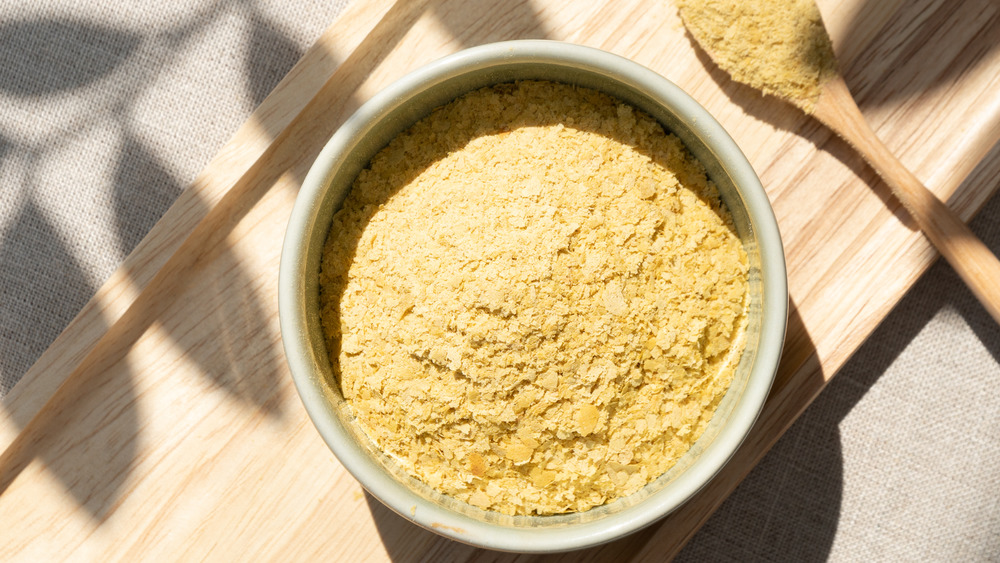What You Need To Know Before Eating Nutritional Yeast
You probably know that yeast helps bread rise and ferment grains to make beer. You may have heard of nutritional yeast, sometimes called vegan cheese, but you might not know what it is and how you could add it to your diet as a seasoning that packs a nutritional punch (via Cooking Light). This type of yeast comes from Saccharomyces cerevisiae, which is closely related to brewer's yeast, but they're not the same, according to Medical News Today. While it's also similar to the type you might use to bake bread, manufacturers heat and dry it, which renders nutritional yeast inactive. This pasteurization process makes it useful as a seasoning or nutrition supplement, but different than what you use for baking. Because it's grown using blackstrap molasses, whey, and sugar beets, the flakey seasoning is usually both dairy and gluten-free, which makes it an excellent choice if you have food allergies.
The yeast is savory because of glutamic acid, which is an amino acid with a naturally nutty flavor, similar to Parmesan cheese, Cooking Light reported. It's packed with B vitamins, protein, and fiber, giving it plenty of power for a relatively small amount of calories. One cup of nutritional yeast is about 60 calories. Samantha Cassetty, RD, nutrition and wellness expert, told Women's Health that the supplement fits in with plant-based eating, and it "adds a cheesy flavor to foods, so for those scaling back on cheese, it's a recipe staple."
Here's how to use nutritional yeast as part of a healthy diet
You may not see how nutritional yeast could fit into your daily diet, but many people put a tablespoon or two on pasta, popcorn, salads, and soup (via Women's Health). Often, people eating vegan diets use it, but you don't have to be vegan to benefit from using it. Cooking Light also noted that you could use it as a flavoring in bread crumbs to make chicken or fish dishes crunchy. Generally, you can buy it at most grocery stores in either powdered or flake form.
Another significant benefit is that nutritional yeast provides a complete protein with all nine essential amino acids. It can also help you control cholesterol. Kelli McGrane, RD, dietitian, told Women's Health, "Nutritional yeast contains beta-glucan, a type of fiber that has been shown to help reduce cholesterol levels." Additionally, it can help regulate blood sugar, making you less susceptible to metabolic disorders (via Medical News Today).
Overall, this supplement can add flavor and nutrition to a healthy diet. "Nutritional yeast can be a healthful addition to an otherwise healthy, plant-focused diet, but it isn't a magic bullet," nutrition Samantha Cassetty told Women's Health.

